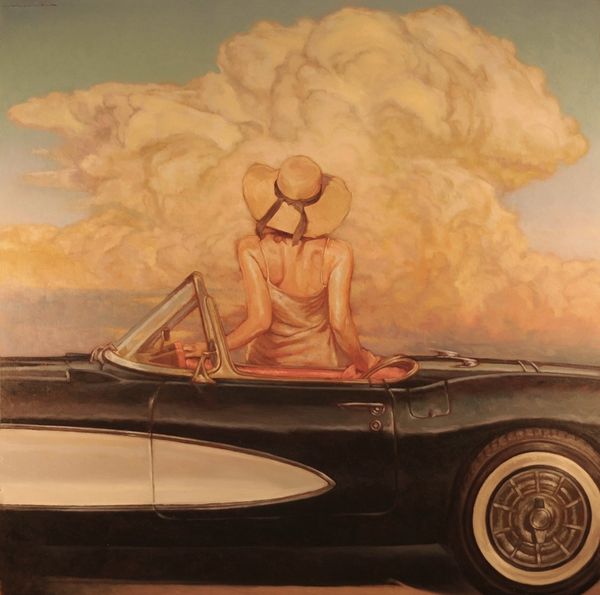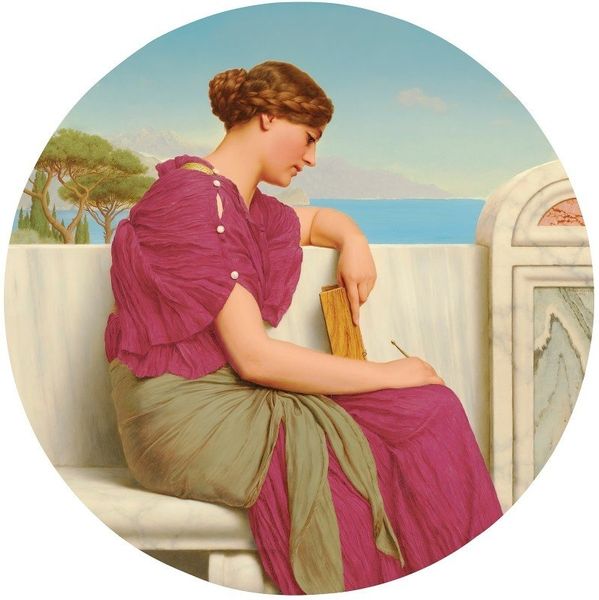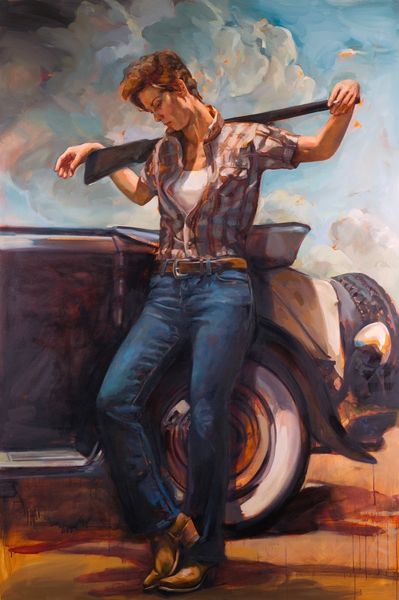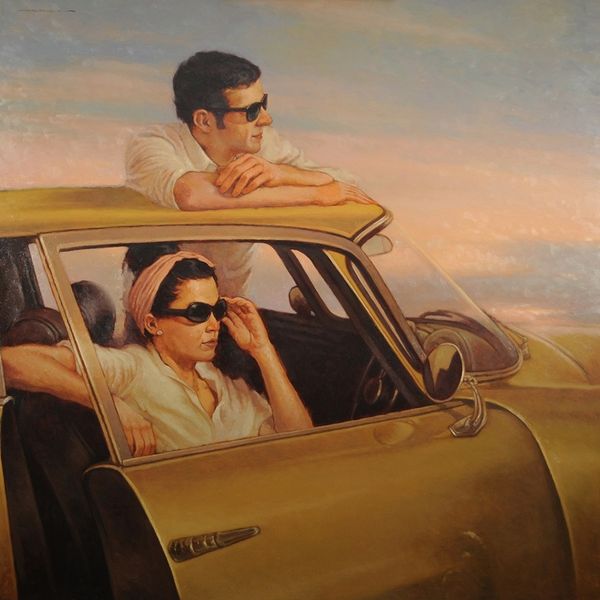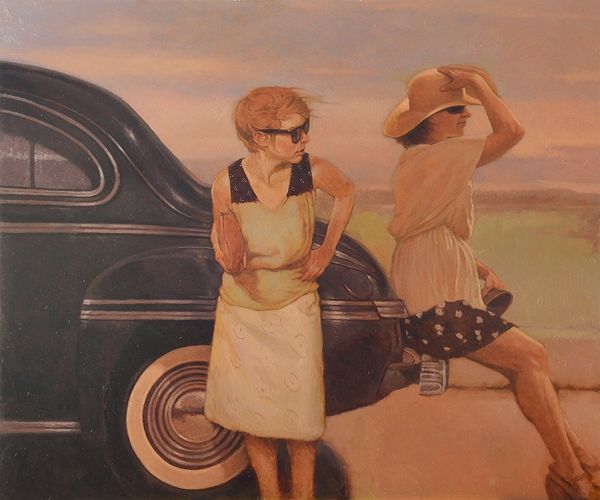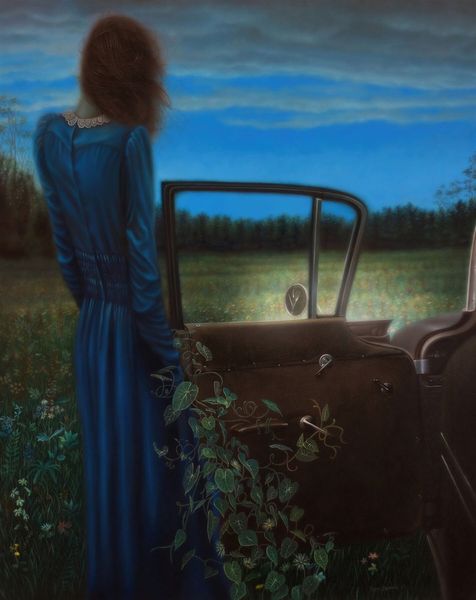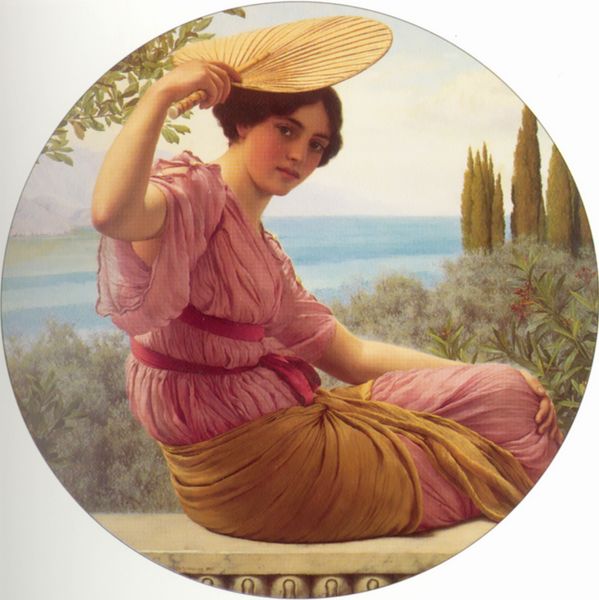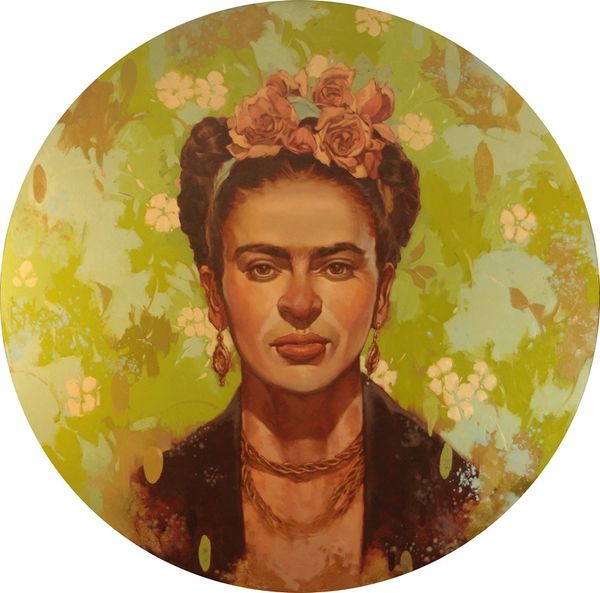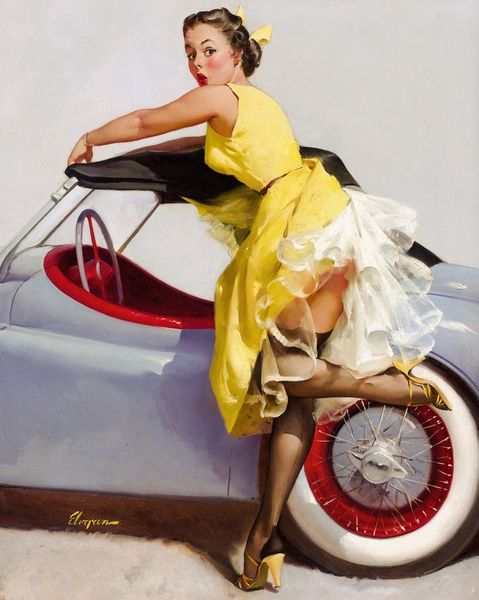
plein-air, oil-paint, impasto
#
portrait
#
figurative
#
plein-air
#
oil-paint
#
oil painting
#
impasto
#
romanticism
#
genre-painting
#
portrait art
#
watercolor
Copyright: Modern Artists: Artvee
Curator: Joseph Lorusso's "End of Summer," done in oil paint with visible impasto layering, immediately strikes me. There's a nostalgic melancholy, isn’t there? A sort of quiet solitude as summer fades. Editor: It does evoke that bittersweet feeling. But looking closely, I'm also thinking about labor here. Oil paint requires processing, pigment extraction. Even "plein-air" work requires material preparation and transport. How does this influence our reading of a seemingly serene image? Curator: Well, it's interesting that you mention that, because "End of Summer" also positions a white woman as a consumer in an open top car against the sky. Consider the fossil fuels expended, and the larger climate conversation. Is it irresponsible, romantic or is it just wistful? Editor: It’s definitely romantic. Lorusso uses these incredibly visible brushstrokes, building up layers of paint almost like a collage. You can practically feel the texture, the weight of the oil paint. Curator: Yes, the physicality of the materials really amplifies the scene, especially the romantic overtones. And it’s a round canvas—like a porthole looking back towards an older image, the subject looks behind to sunsets past, perhaps to better times? Editor: I would argue, in terms of who gets access to these sunset scenes is an important thing. In a way, she has a position of power within the image because the oil in her machine directly pollutes those beautiful skies. We get the feeling the end of summer does not really effect her that much. Curator: The use of "oil-paint" of course can't be ignored, it feels too salient. Even as it fades, its effects are far from over. As a genre painting, it fits into an established canon but feels consciously posed against the background. I agree though; she definitely appears shielded. Editor: I concur. "End of Summer" reminds me how artistic choices, both material and representational, engage with the environment in more than just visual ways, but really speak to current debates, don’t they? Curator: Absolutely. It leaves you with this lingering question of what remains when the carefree days are over, and for whom were they really "carefree"?
Comments
No comments
Be the first to comment and join the conversation on the ultimate creative platform.
